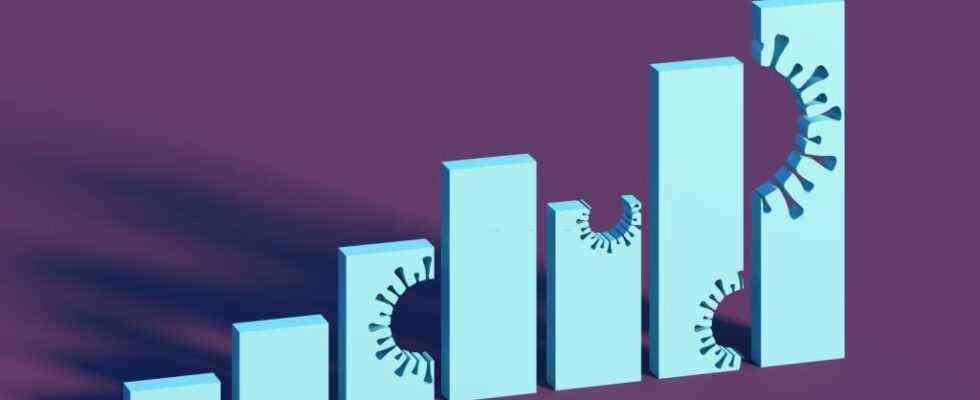Just while we are waiting for a potential third wave of the coronavirus to spread across the country, and widespread speculation in the coming winter months, new alarm bells in the form of a new mutation of the SARS-COV-2 have been rung. which is spreading in some parts of the world.
According to recent reports, health authorities in Germany are also currently investigating the sub-variant of SARS-COV-2, which is seen as the main cause of a renewed increase in cases in the UK in recent weeks. The news that follows, as well as several COVID-19 norms being relaxed around the world and cases that are dangerously increasing in China, should be taken as a sign, according to experts, that the pandemic is far from over.
The newest mutation of the SARS-COV-2 virus, ‘AY.4.2’, is a subline of the delta variant of the infectious virus. It is currently referred to as the “Delta Plus” variant.
Up to 75 AY lines of the coronavirus have been identified so far, according to leading Columbia University scientists, but the AY.4 in question is one such sub-variant that is spreading rapidly, and particularly in parts of the UK, that has seen a dramatic increase in recent months of the cases of delta variants recorded is viewed as steadily increasing. According to reports, up to 63% of new cases in the past month have been genomically sequenced to have the AY.4.2 variant. Furthermore, the AY. Subline 4.2 has also been tracked in parts of Europe, including Denmark and Germany, after it was first identified in July. Researchers have raised concerns that the lineage belonging to the rapidly spreading delta variant could be highly contagious, causing repeated surges around the world.
How does it differ from the “Delta Plus” variant identified earlier?
In the past few months, the Delta Plus variant is believed to have been a different mutation, B.1.617.2.1 / (AY.1), which was first fully identified in states. While the variant was labeled the Concern (VoC) variant, it was considered more threatening than the Delta variant. While the current mutation is also a subline of the Delta variant, it has proven more threatening as it has been traced back to more cases around the world.
Both Coronavirus mutations however, descend from the Delta variant and could therefore dispel concerns at this critical moment when vaccination coverage is still far from being efficient and many are returning to the pre-pandemic world.
Has it already been cited as a variant of interest or interest?
Defining a variant as a Variant of Concern (VoC) or Variant of Interest (VoI) can help experts better examine the results and take the necessary measures. The current sublineage variant identified in the UK has yet to be flagged as a possible variant of concern or concern and is only suspected as an investigated variant (VUC) by UK health authorities.
What do we know about the symptoms and potential dangers of this mutation?
Although much is still unknown about the lineage at this time, experts believe their delta-variant origins could signal potentially worse COVID-19 symptoms, be more contagious, and spread quickly. While the delta variant of the coronavirus is said to be about 60% more contagious, the AY.4.2 line could also have a similar fate.
There is also little evidence that the current variant in question renders vaccine-directed antibodies or immunity ineffective. However, it has currently been investigated that the lineage contains a mutation of concern – A1711V, which affects the virus’ Nsp3 protein, which plays a number of roles in virus replication. It also has two additional mutations that could potentially affect the virus’ spike protein.
How concerned should we be at this stage?
Researchers haven’t yet been able to tell how potentially contagious it is – and how quickly it could spread in the future. The main concern, however, is that the lineage is from the Delta variant, which also affects vaccination. Since it took a while for the Delta variant to spread, we should be doubly sure and not get complacent in our approach.

